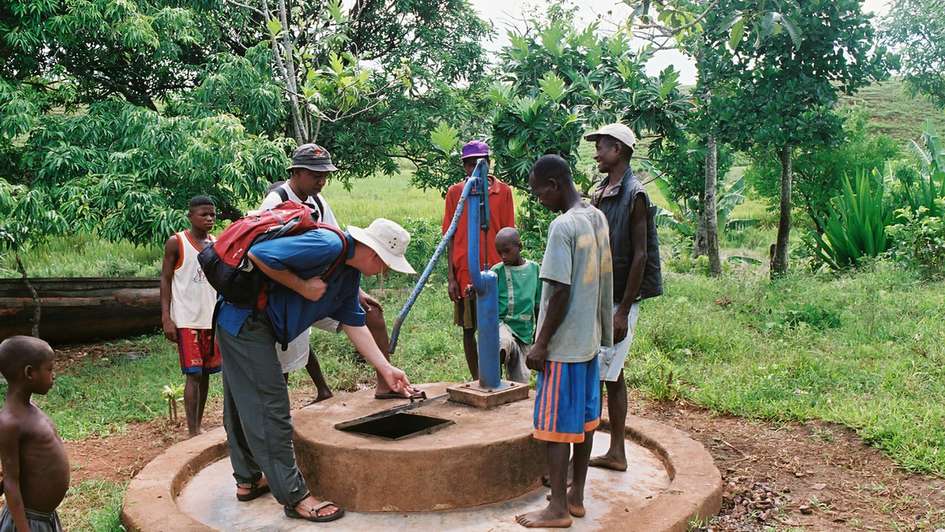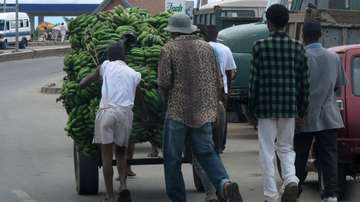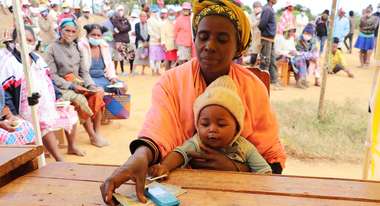Madagascar - Hunger in a Natural Paradise
Too little and not enough diverse food: Almost half of the population suffers from chronic undernourishment.

Madagascar - isn't that nature's paradise? Correct. But every day, people are suffering from hunger on this tropical island in the Indian Ocean. Every second child is malnourished. Many families are living in dire poverty. In 40 villages, in the southeast of the island, Welthungerhilfe is assisting 7,000 families in improving their difficult situation. In four regions, people learn about the importance of healthy food in cooking courses; especially women participate here. Moreover, there are radio programs which talk about and inform their listeners about a healthy and balanced diet.
Eating a wide variety of food and healthy meals helps to stay healthy: "Before, we almost always ate rice. That's the way it has always been. Now I know that things like Chinese cabbage, peanuts, dried fish and oil are also important", says course participant Bao Emilienne. Since her husband had to leave her to find work in the city, she has been on her own with their three children. Three out of four Malagasy are farmers but they can barely provide for their own families with their harvest. Welthungerhilfe offers advice on agriculture and distributes seeds to support them.
Trees provide flood protection and fruits
The desperate inhabitants have already cleared many forested areas to cultivate food and used the wood to burn it in the stoves. The cleared areas are difficult to farm; also, tools and seeding techniques are often not suitable, broken or simply not available. Welthungerhilfe helps people with modern and simple seeding techniques, to care for and harvest the plants. Soon manioc, yams, sweet potatoes and beans will be growing on the fields.
"Various fruits and vegetables could grow in the valleys of the island", reports Caroline Peyre, Country Officer for Madagascar at Welthungerhilfe. But strong rains regularly cover the fields in the valleys with mud. To prevent these incidents in the future, it is necessary to reforest the bare hillsides that have been cleared. Mango and lychee trees will prevent the soil from being swept down again. Whatever the families do not consume can be sold on the market and will generate some extra income. However, stable paths are needed between the villages and the neighbouring roads to ensure that the harvest reaches these places. With Welthungerhilfe's support, the villagers build and maintain the roads themselves. They receive commensurate compensation for their work.
New hope in nature's paradise
Apart from the newly cultivated fields, the population needs fresh and clean water. Many infections are the result of dirty drinking water and a lack of hygiene. Therefore new wells and pumps are constructed in addition to large-scale irrigation channels. They will ensure clean drinking water in the future. Welthungerhilfe provides the villagers with additional materials for the construction of new latrines. The families are taking matters - and thus the progress of their home country - into their own hands, quite literally!
This project is co-financed among others by the Federal Ministry for Economic Cooperation and Development (BMZ), the European Union and Welthungerhilfe.








